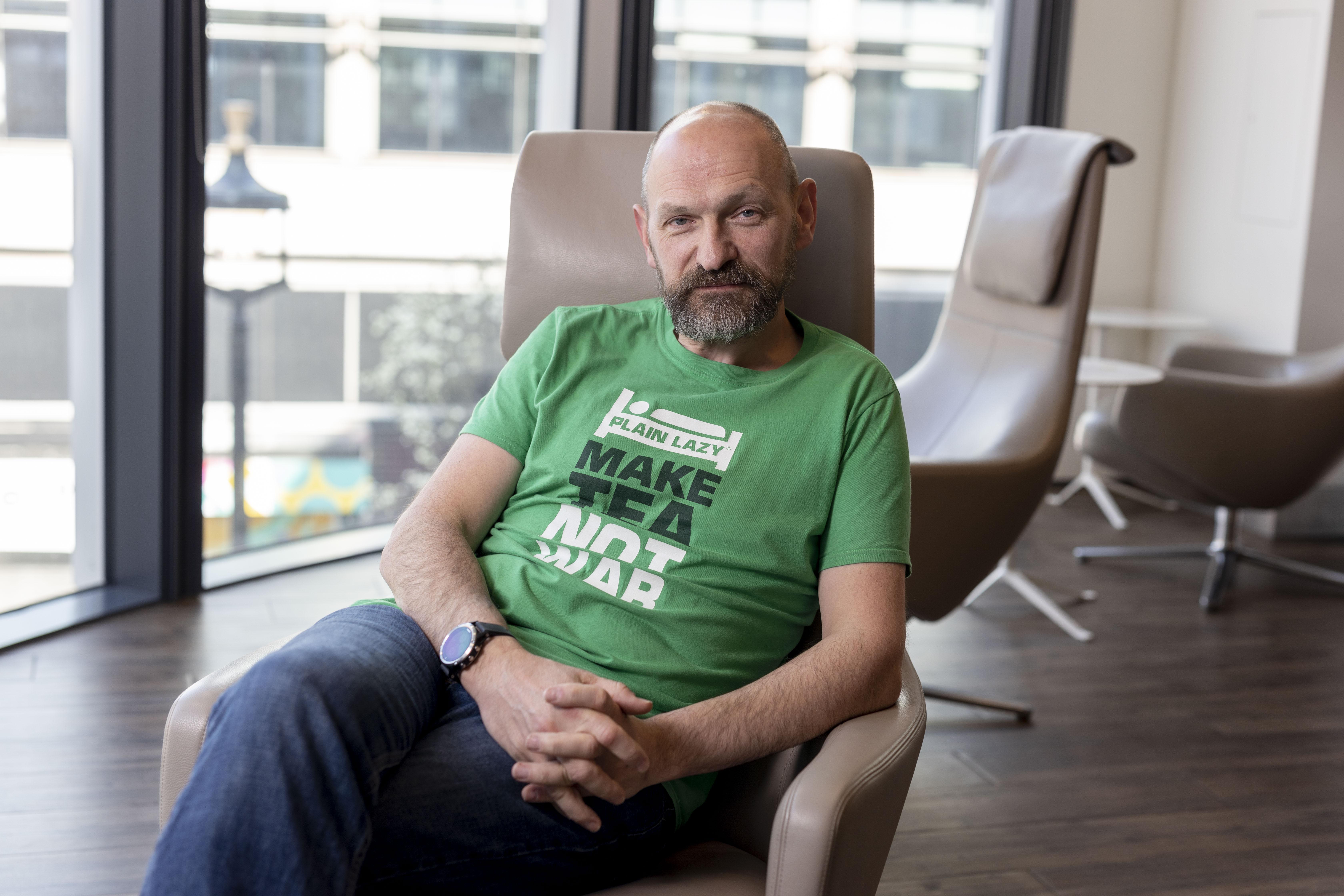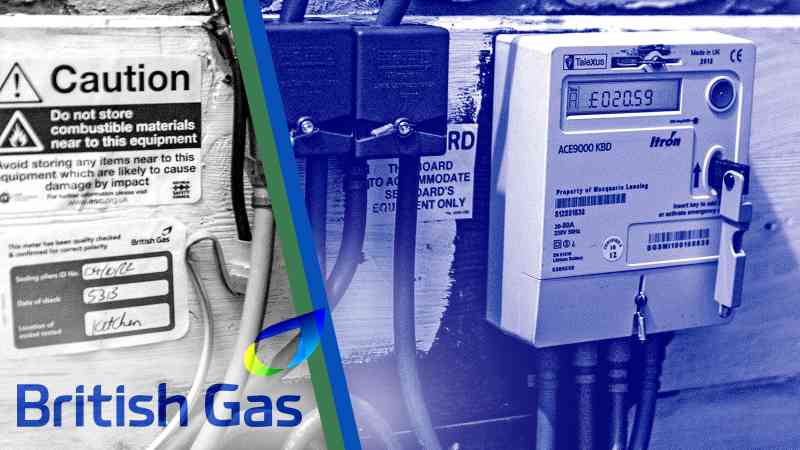Debt collectors working for British Gas have admitted to completely disconnecting heating or electricity on families when they have been unable to fit a prepayment meter, The Times can reveal.
A manager for Arvato Financial Solutions, a firm that collects debts for British Gas, told an undercover reporter that pay-as-you-go meters could not be installed at some homes so agents should cut people off entirely. “We were pushing them [British Gas] and saying grow a pair of balls and just f***ing disconnect these people because they will stop doing it. And now with British Gas, we’ll disconnect them,” he said.
While energy suppliers are technically allowed to disconnect residential customers, the practice is meant to be very rare, with customers instead forced on to prepayment meters. Most energy companies only routinely disconnect commercial properties because of debts.
The debt collection manager, who said he had previously been employed directly by British Gas, also described using underhand tactics to help staff pass tests meant to ensure they were checking for customer vulnerabilities.
The findings have been passed to Ofgem, the energy regulator, which yesterday announced legal action against British Gas in light of the Times investigation.
British Gas has been banned from breaking into homes and force-fitting prepayment meters until it can prove that it is complying with all its legal obligations. All other big energy companies have agreed to suspend the practice as well.
There are growing calls for a government review and legal change to ban the practice and protect vulnerable customers.
•Grant Shapps comment: British Gas has been cruel, callous and vicious over force-fitting meters
A Times reporter worked undercover for Arvato last month, collecting debt on behalf of energy firms. British Gas was found to be routinely sending debt collectors to break into homes and force-fit prepayment meters even when customers were known to be extremely vulnerable. The reporter was among teams sent to force-fit meters at the homes of a 77-year-old man, a single father with three children and a mother with a four-week-old baby.
Job notes from across the country showed that families forced on to pay-as-you-go meters in recent weeks included a woman in her fifties with “severe mental health bipolar” and another described as living alone with a heart condition.
During the reporter’s interview for the role, an Arvato manager said that British Gas fully disconnected supplies to some residential properties after obtaining warrants from courts. These were for homes where the energy supply was larger than usual, for instance in big houses. The larger supply made it impossible to fit a prepayment meter, he said.
•Case studies: Polly Tearooms fears the heavy tread of Arvato debt collectors
When the reporter asked, “What about the heating?”, the Arvato manager said: “It’s not your responsibility. British Gas have risk-assessed that and they are happy,” adding: “You do it a lot.”
The Arvato manager said that the supplier only started disconnecting these families in recent years, and that each visit had to be pre-approved by a senior staff member at British Gas. “We’ve been doing that for about five or six years now — the disconnection visits on domestic. Never used to touch them,” he said.
Alfonso, one of the Arvato debt collectors, later described doing this at the home of a customer who had been obstructive to the team. “Because the gas meter was outside the engineer said, ‘Do you know what, I’m just going to cap it. I’m going to fit a cap.’ ” The reporter asked what being “capped” meant, and Alfonso replied: “It’s blocked. They’re disconnected. They can’t use it.”
In light of the Times investigation there have been growing calls for legal change to protect vulnerable customers long term.
Caroline Flint, a government adviser on fuel poverty, said that ministers should conduct a review into whether the practice of forcibly installing prepayment meters “should happen at all”.
Flint, a former Labour MP who is now chairwoman of the government-sponsored fuel poverty committee, told BBC Radio 4’s Today: “Energy companies have been given the benefit of the doubt on this for too long.”
Grant Shapps, the business and energy secretary, summoned British Gas to an urgent meeting this week. He said: “It is frankly abhorrent for a company which styles itself as ‘British Gas’ to be so callous and cruel to customers. There is nothing British about that.”
The undercover reporter learnt that Arvato debt collectors recorded parts of each visit to customer homes. Two recordings a month were then scored by an assessor to make sure they were asking important questions on a script about customer vulnerability and their ability to pay.
He was told that he should ensure that he had run through the full script on at least two occasions a month and then send details of these specific visits to his manager, so that those ones could be put forward for assessment.
The Arvato manager said: “We have to quality score how you talk to customers. Are you providing the support that we are contracted and British Gas are licensed to offer? If you go to someone and you feel like I’ve covered off everything, you can screenshot the job and say QA [quality assurance] that please. That’s what I want you to do because it’s more likely you’re going to pass.”
Jonathan Brearley, chief executive of Ofgem, said it had ordered “immediate action to protect British Gas’s customers” and that he would not hesitate to take “the strongest action in our powers”.
Ofgem said that suppliers must not disconnect for debt unless they have taken all reasonable steps to recover charges via other means. Suppliers must never disconnect any domestic properties in winter for debt if the customers are of pensionable age or live with children who are under 18.
No excuses, says chief never short of a quote

In an interview with The Times last year Chris O’Shea, the chief executive of Centrica, which owns British Gas, boasted of his everyman credentials (Charlotte Wace writes).
Wearing a hoodie featuring the quote “Why be racist, sexist, homophobic or transphobic when you could just be quiet?”, he told the journalist: “I shop in the clearance rail at TK Maxx and I shop in charity shops sometimes. That’s just me.”
This week he became the face of a scandal after this newspaper revealed that debt agents forced their way into the homes of people struggling to pay their bills on behalf of his company.
Responding to the investigation, O’Shea was effusive in his contrition. “I am really, really sorry,” he told Sky News. “We’ve clearly got it wrong here and we are going to fix that.”
Previous efforts to appear humble have been well publicised. For 2021, the last year that figures are available, he turned down a £1.1 million bonus. Although he was paid £875,000 that year — a vast sum to the majority of people — it was less than his counterparts at E.ON and Scottish Power.
He is thought to live in the same home he purchased more than a decade ago for £950,000. The property, in Reading, is thought to be worth £1.5 million today.
O’Shea, 49, who is married with three children, was born in Fife and moved to Glasgow when he was 11. He went to comprehensive school and studied accounting at Glasgow University after being rejected from Oxford to study law.
Outside of work, he has revealed that his hobbies are spending time with friends and family and running. His last holiday was to Florida. He still watches Celtic FC with his school friends, he told The Guardian.
O’Shea’s career began as a trainee chartered accountant at Stevenson & Kyles. After working for companies such as Ernst & Young and Shell, he joined Centrica in 2018, first as chief financial officer, then interim chief executive. He took up his present position in April 2020.
The beginning of his tenure was not all smooth sailing — he was forced to suspend Centrica’s dividend thanks to a slump in commodity prices during the first wave of the pandemic. He also ordered 5,000 job cuts to try to resolve Centrica’s “complicated” structure. In an interview last year, O’Shea turned up in the hoodie that he claimed to wear “more than I wear a suit”.
He claimed that the slogan on it reminded him of his mother, who would tell him: “If you’ve got nothing nice to say, don’t say anything at all” — adding that it was not a statement on the present discourse on transphobia when asked how it might be regarded.
In the same interview he was asked if money motivated him. “No”, he replied. “If money motivated me I wouldn’t be here. Money is a hygiene factor; you’ve got to have something in the right ballpark, but I’m not coin-operated.”
Last year, he said he knew of the pain that Ofgem, the energy regulator, raising the cap on gas and electricity bills for most people would cause households across the country.
“Every week we hear from customers struggling to make ends meet — whether filling up the car, doing the weekly shop or finding the money to heat their home,” he said in a press release, as he announced that his company was putting another £2 million into the British Gas energy support fund.
This week, he did not attempt to justify the actions of debt collectors working on behalf of British Gas who had expressed excitement at installing prepayment meters in the homes of people who could not pay their bills, including the vulnerable.
“The contractor that we’ve employed, Arvato, has let us down but I am accountable for this,” he said.
Speaking on BBC Radio 4’s Today, he said: “This happened when people were acting on behalf of British Gas. There is nothing that can be said to excuse it.”
Arvato Financial Solutions has said that it acted “compliantly at all times in accordance with the regulatory requirements”.
